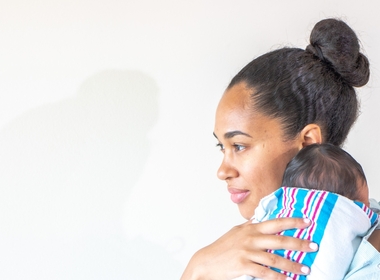For many women and birthing people, pregnancy and the postnatal period can be challenging for their mental health. But for those navigating addiction, it can bring immense difficulty, compounded by stigma, lack of support and, in serious cases, the trauma of child removal.
At the Maternal Mental Health Alliance (MMHA), we know that these experiences can have a profound and lasting impact on someone's perinatal mental health. Women and birthing people facing addiction during the perinatal period are among the most judged and misunderstood, yet they remain one of the least supported groups.

Maternal Mental Health Services in England support women whose child has been removed

of women with substance use issues avoid seeking help due to fear of judgment or consequences

Women who experience addiction and child removal are more likley to have life-threatening perinatal mental health issues
Substance misuse and mental health challenges are deeply connected, yet care for these issues is often siloed. Many people turn to substances as a way to cope with past trauma or untreated mental health difficulties. During pregnancy and early parenthood, the lack of integrated support can worsen outcomes for both the parent and baby.
Women and birthing people with addiction often encounter judgment and stigma when accessing services, leading to delays in treatment or inadequate care.
Pregnancy and the postnatal period are critical times to provide mental health support, yet many women and birthing people report feeling invisible or dismissed by professionals.
The loss of a child through care proceedings can deepen feelings of failure and despair, making mental health struggles worse.
I used drugs to cope because there was no other support. When my child was removed, no one helped me understand what I was feeling or how to get through it.
Stigma remains a significant barrier for parents facing addiction. Many feel judged not only for their substance use but also for their parenting. This shame often prevents women and birthing people from seeking help, leaving them isolated and unsupported.
I kept trying so hard to do the right thing, but it never seemed to be good enough.
Women and birthing people navigating addiction during the perinatal period deserve compassionate, trauma-informed care. Based on our listening project, they need:
Talking to others who’ve been through similar experiences made me feel less ashamed and more hopeful.
Every woman and birthing person deserves to feel supported and seen during her journey into parenthood, no matter their circumstances. Addressing the inequalities faced by women and birthing people experiencing addiction and child removal is critical to improving perinatal mental health outcomes.
Discover the research
In the UK, significant disparities exist in maternal health outcomes between Black women and birthing people compared to their white counterparts, particularly concerning mental health and access to care.

There is a gap in consistent professional enquiry and curiosity about domestic abuse. There is also a gap in knowledge about the role of health professionals and their responsibilities regarding domestic abuse, signs of abuse and links to trauma.

Historically, much of the conversation around young motherhood has focused on preventing teenage pregnancies, and as a result, little attention has been paid to the needs of young parents.